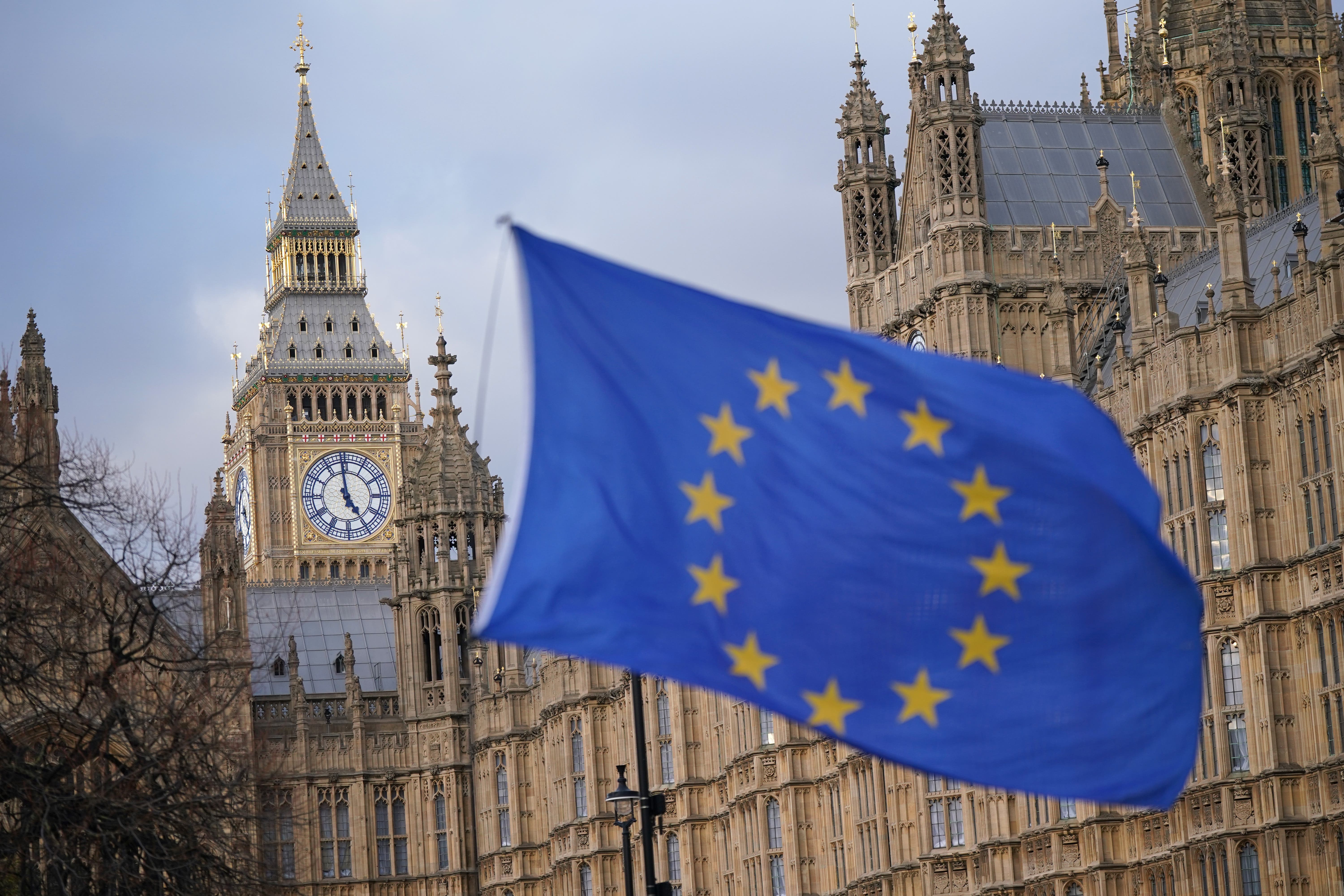Voters believe UK should prioritise EU trade over the US, poll reveals
Some 44% of Britons think Britain’s economic future lies with its closest neighbours in the EU, compared with 19% who favour the US.

Voters believe the UK should prioritise its relationship with Europe over the US, a poll has revealed.
Some 44% of people think Britain’s economic future lies with its closest neighbours in the EU, compared with 19% who think the Government should prioritise links with the US, a YouGov poll commissioned by Best For Britain showed.
The poll of more than 4,300 people was carried out between November 25 and 27, and comes as President-elect Donald Trump looks set to hike trade tariffs on goods entering the US.
He has already raised the spectre of tariffs with his nearest neighbours in Canada and Mexico in a bid to curb migration, as well as new fees on Chinese goods.
Attitudes are shifting and people and businesses recognise that we need to rebuild relations with the EU to help our economy to succeed
Best for Britain’s polling shows that more Britons trust the EU, at 49%, than the US, on 30%.
More people were distrustful of the US than those who said they trusted the country, with 40% of respondents.
In a blow to the previous government’s “global Britain” strategy, which aimed to broaden the UK’s trading partners to rapidly growing economies across the world, voters took an unfavourable view of these nations.
China, India, Saudi Arabia and Brazil all scored 12% or lower in terms of trust with respondents.
Voters who had previously backed the Tories but switched to Labour in the summer were among those who supported closer ties with Europe, signalling the Government can have some confidence it will not divide its electoral coalition by prioritising trade with the bloc.
Some 160 of those polled were part of this group of voters.
Though the polling suggests the public favour closer ties with Europe over the US, Sir Keir Starmer has rejected suggestions the UK needs to make such a choice, recently describing it as “plain wrong”.
The Prime Minister has attempted to lay the groundwork for cordial relations with the Trump administration, meeting the president-elect in New York in September.
He has also sought to reset the UK’s relations with European nations since coming to power, meeting leaders from across the continent during his five months as Prime Minister.
A test of whether his strategy bears fruit will take place when a review of the Trade and Co-operation Agreement, the basis for the UK-EU relationship after Brexit, takes place in 2026.
An influential commission of MPs and business leaders which has provided recommendations for the EU-UK relationship after Brexit is set to reconvene.
The UK Trade and Business Commission will meet under the new leadership of Labour MP Andrew Lewin.
The vice chairs include Liberal Democrat MP Layla Moran, Sir Jonathan Faull, a former British official to the EU Commission, and Peter Norris, the chairman of Virgin Group.
Other members include Lord Darroch, a former UK ambassador to the US.
Mr Lewin, the MP for Welwyn Hatfield, said it is “vital for the UK to strengthen our ties with our biggest and closest trading partner” – the EU – as the world enters “an increasingly volatile and uncertain global trading environment”.
He added: “It’s clear from this latest polling that public opinion has moved on from the binary Leave-Remain divide. Attitudes are shifting and people and businesses recognise that we need to rebuild relations with the EU to help our economy to succeed.
“All of this means the role of the UK Trade and Business Commission in putting forward pro-growth policy proposals will be more important than ever.”
Bookmark popover
Removed from bookmarks